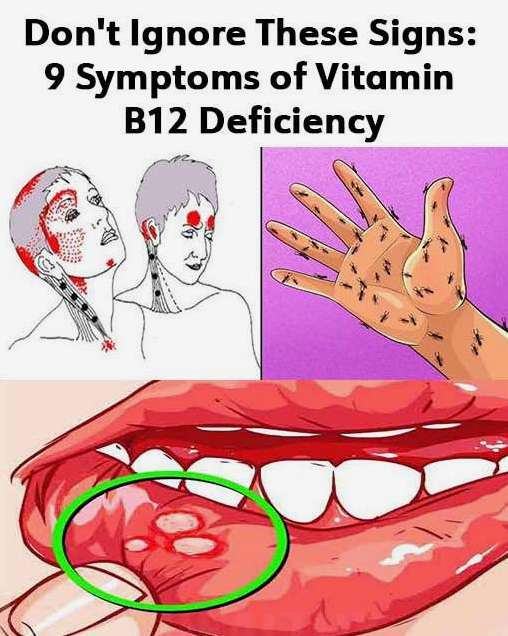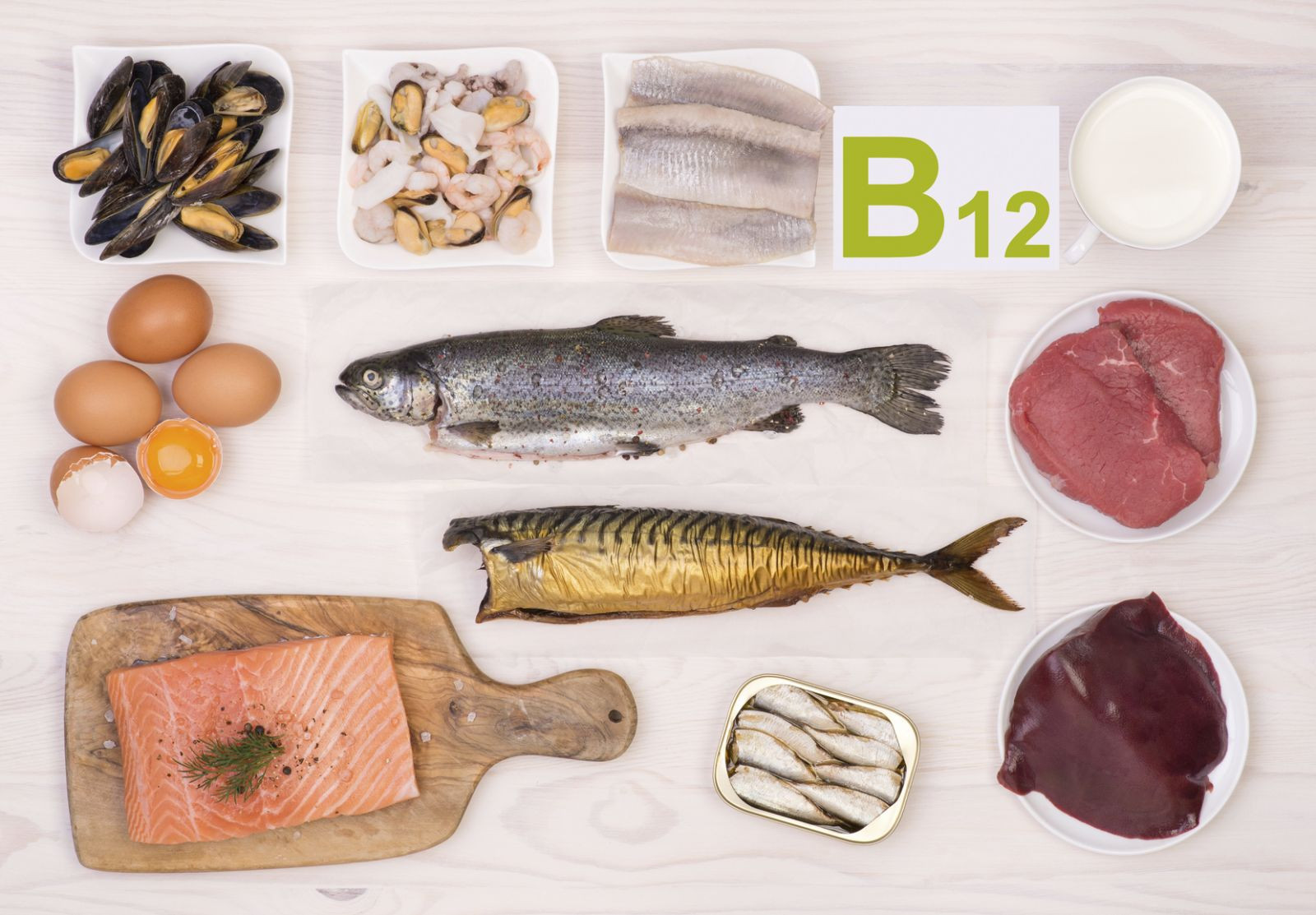Vitamin B12, also known as cobalamin, plays a crucial role in keeping the body functioning smoothly. It helps produce red blood cells, supports the health of the nervous system, and assists in the formation of DNA—the blueprint of every cell in your body. When B12 levels drop too low, a wide range of health problems can develop, some of which may become serious if left untreated.
Recognizing the early signs of B12 deficiency is extremely important, as many symptoms often appear gradually and can be mistaken for everyday fatigue or stress. Below, we’ll explore the most common symptoms, the underlying causes of deficiency, and the best food sources to maintain healthy levels.

9 Common Symptoms of Vitamin B12 Deficiency
A shortage of B12 can show up in different ways. Here are nine symptoms frequently associated with low B12:
1. Anemia
One of the most typical consequences of deficiency is megaloblastic anemia, a condition where red blood cells become abnormally large and inefficient at carrying oxygen. This often leads to persistent tiredness and shortness of breath.
2. Fatigue and Weakness
Because red blood cells are unable to transport oxygen effectively, many people with low B12 feel constantly drained or physically weak, even after resting.
3. Headaches and Reduced Concentration
Low B12 can impact brain function, causing frequent headaches, “brain fog,” and trouble staying focused.
4. Vision Disturbances
A severe deficiency may affect the optic nerve, leading to blurry vision or visual distortions.
5. Depression and Mood Changes
B12 plays a role in producing neurotransmitters that regulate mood. Low levels may contribute to sadness, irritability, or other emotional changes.
6. Numbness or Tingling in Hands and Feet
Because B12 is essential for nerve health, deficiency can cause neuropathy—resulting in tingling sensations, numbness, or burning sensations.
7. Digestive Problems
Some people experience nausea, constipation, poor appetite, or other digestive discomforts when B12 is insufficient.
8. Nervousness or Irritability
Low B12 can heighten stress responses, making someone more easily agitated or anxious.
9. Heart-Related Issues
Deficiency may increase homocysteine levels, which can strain the cardiovascular system and elevate the risk of heart problems.
What Causes Vitamin B12 Deficiency?
There are several different reasons why someone may develop low B12 levels. Some are dietary, while others are related to absorption issues in the digestive tract:
• Inadequate Diet
Since B12 is naturally found in animal products, individuals following vegan or strict vegetarian diets are more likely to be deficient unless they consume fortified foods or supplements.
• Gastritis or Low Stomach Acid
The body needs stomach acid to absorb B12. Conditions that reduce acid production—such as chronic gastritis—can interfere with absorption.
• Pernicious Anemia
This autoimmune condition prevents the stomach from producing intrinsic factor, a protein essential for absorbing B12.
• Digestive Disorders
Conditions like Crohn’s disease and celiac disease damage the intestinal lining, limiting nutrient absorption.
• Gastrointestinal Surgeries
Procedures such as gastric bypass reduce the part of the stomach or intestine responsible for absorbing B12.
• Excessive Alcohol Consumption
Chronic alcohol use can irritate the stomach lining and reduce nutrient absorption.
• Rare Genetic Disorders
Some people are born with genetic conditions—such as transcobalamin II deficiency—that interfere with B12 transport in the body.
Top 9 Foods Rich in Vitamin B12
- Incorporating B12-rich foods can help prevent deficiency and support overall health:
- Liver – One of the richest natural sources of both B12 and iron.
- Shellfish – Oysters, cockles, and other shellfish provide high levels of the vitamin.
- Salmon – Nutritious and supportive of heart and brain function.
- Tuna – Another excellent, protein-rich source.
- Ground Beef – Provides both B12 and essential minerals.
- Milk – A simple daily option with steady B12 content.
- Yogurt – Good for digestion and naturally contains B12.
- Eggs – Easy to add to meals and nutrient-dense.
- Fortified Cereals – A convenient option for those avoiding animal products.

Bottom Line
Vitamin B12 is a vital nutrient that supports energy production, nerve function, and overall well-being. If you recognize any symptoms of deficiency—or fall into a high-risk group—it’s important to consult a healthcare professional. Pairing medical advice with a diet rich in B12 foods can help protect your health and prevent complications over time.